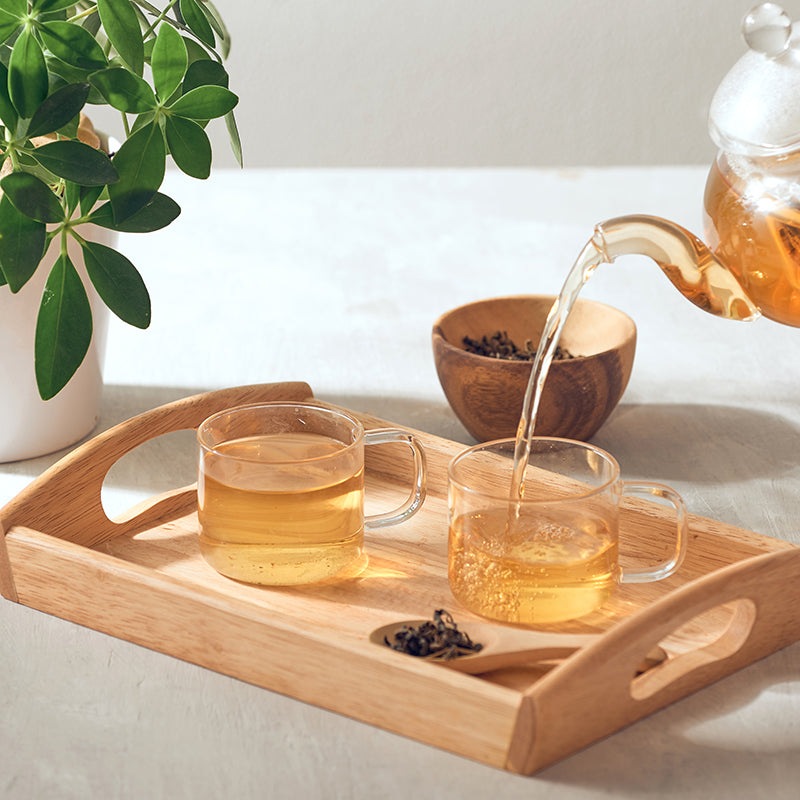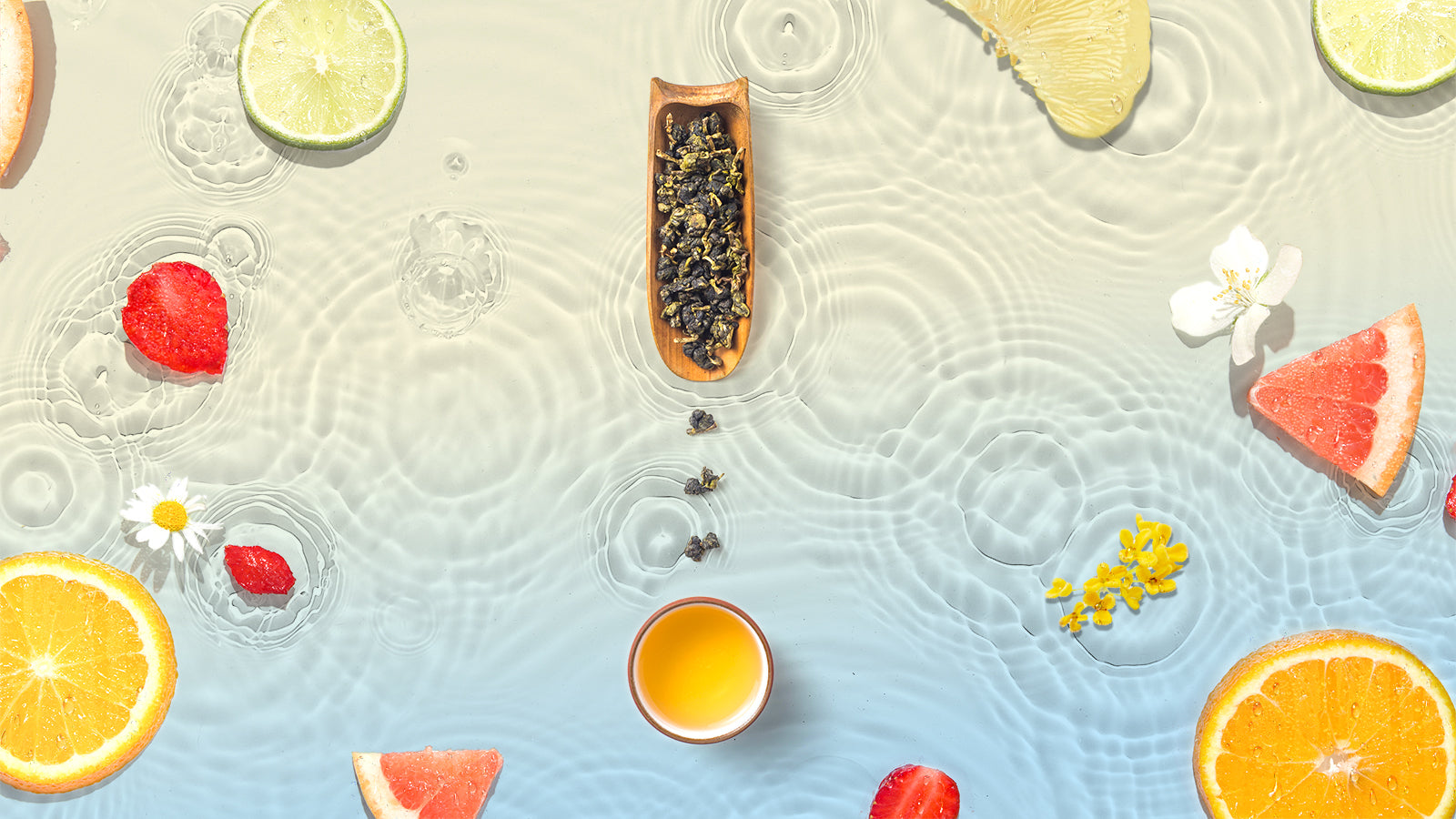Exploring the Rich Heritage of China's Tea Culture

Tea is not just a beverage in China; it's a way of life that has been deeply ingrained in the country's history, culture, and daily rituals for thousands of years. From the rolling hills of Zhejiang to the misty mountains of Yunnan, China's tea culture is as diverse and rich as the land itself. Join us as we delve into the fascinating world of Chinese tea, exploring its history, varieties, ceremonies, and health benefits.
A Brief History of Chinese Tea
The origins of tea in China date back over 5,000 years. According to legend, Emperor Shen Nong discovered tea accidentally when leaves from a wild tree blew into his boiling water. Intrigued by the aroma and taste, he found the brew refreshing and invigorating, marking the beginning of tea's storied journey.
Throughout Chinese history, tea has evolved from a medicinal herb to a daily staple and a symbol of hospitality and refinement. During the Tang Dynasty (618–907 AD), tea culture flourished, becoming an essential part of social and cultural life. The subsequent Song Dynasty saw the refinement of tea preparation and the development of elaborate tea ceremonies, emphasizing aesthetics and mindfulness.
Diverse Varieties of Chinese Tea
China boasts an incredible array of tea varieties, each with unique flavors, aromas, and health benefits. Here's a look at some of the most renowned types:
1. Green Tea (绿茶):
- Overview: Green tea is the most popular type in China, known for its fresh, delicate flavor and high antioxidant content.
-
Famous Varieties:
- Longjing (Dragon Well): Hailing from Hangzhou, it offers a smooth, sweet taste with a hint of chestnut.
- Biluochun: From Jiangsu province, noted for its floral aroma and fruity flavor.
2. Black Tea (红茶):
- Overview: Known as "red tea" in China, it is fully fermented, resulting in a rich, robust flavor.
-
Famous Varieties:
- Keemun: From Anhui province, featuring a fruity and slightly smoky taste.
- Dianhong: From Yunnan province, known for its malty and sweet flavor.
3. Oolong Tea (乌龙茶):
- Overview: Semi-fermented, offering a balance between green and black teas with complex flavors.
-
Famous Varieties:
- Tieguanyin: From Fujian province, with a floral and mellow taste.
- Da Hong Pao: A rare and highly prized tea with a rich, earthy flavor.
4. White Tea (白茶):
- Overview: Minimally processed, retaining a delicate and subtle flavor profile.
-
Famous Varieties:
- Bai Mudan: Light and sweet with a fresh aroma.
- Silver Needle: Highly prized for its subtle sweetness and silky texture.
5. Pu-erh Tea (普洱茶):
- Overview: A unique fermented tea that improves with age, offering deep, earthy flavors.
-
Famous Varieties:
- Raw Pu-erh: Fresh and strong taste that mellows over time.
- Ripe Pu-erh: Smooth and rich, developed through an accelerated fermentation process.
6. Yellow Tea (黄茶):
- Overview: Rare and less known, featuring a mellow and sweet flavor with a fruity aroma.
-
Famous Varieties:
- Junshan Yinzhen: From Hunan province, delicate and slightly sweet.
The Art of Chinese Tea Ceremonies
Tea ceremonies in China are a harmonious blend of preparation, presentation, and appreciation, reflecting the country's philosophy and aesthetics.
1. Gongfu Tea Ceremony (工夫茶):
- Overview: Originating from Fujian and Guangdong provinces, this ceremony emphasizes brewing tea with skill and precision to extract the best flavor.
-
Key Elements:
- Tea Ware: Small teapots (often Yixing clay) and tiny cups to concentrate and appreciate the aroma and taste.
- Brewing Technique: Multiple short infusions to experience the evolving flavors of the tea.
- Mindfulness: Focus on the sensory experience and the connection between host and guests.
2. Tea and Zen (茶禅):
- Overview: Influenced by Buddhist practices, this approach views tea preparation and consumption as a form of meditation.
-
Key Elements:
- Simplicity: Emphasis on simple, natural materials and an uncluttered environment.
- Harmony: Creating balance between the tea, utensils, environment, and participants.
- Inner Peace: Using the ritual to cultivate tranquility and mindfulness.
3. Ethnic Minority Traditions:
-
Overview: Various ethnic groups in China have unique tea customs.
- Tibetan Butter Tea: Made with tea leaves, yak butter, and salt, providing warmth and nutrition in the high-altitude regions.
- Mongolian Milk Tea: Combining tea with milk, salt, and sometimes butter or roasted grains.
Health Benefits of Chinese Tea
Chinese teas are celebrated not only for their taste but also for their numerous health benefits:
1. Antioxidant Properties:
- Help combat free radicals, reducing the risk of chronic diseases and promoting overall health.
2. Improved Digestion:
- Teas like Pu-erh aid digestion and can help reduce bloating and improve gut health.
3. Weight Management:
- Green and Oolong teas boost metabolism and assist in fat oxidation, supporting weight loss efforts.
4. Mental Alertness and Calmness:
- The combination of caffeine and L-theanine in tea enhances focus while promoting relaxation without drowsiness.
5. Heart Health:
- Regular consumption can lower cholesterol levels and reduce blood pressure, decreasing the risk of heart disease.
6. Immune Support:
- Rich in vitamins and minerals, tea strengthens the immune system and helps ward off illnesses.
Incorporating Chinese Tea Culture into Modern Life with SunnySips
At SunnySips, we are passionate about bringing the authentic experience of Chinese tea culture to your everyday life. Our carefully curated selection of premium tea sachets allows you to explore and enjoy the rich flavors and traditions of China's finest teas with ease and convenience.
Our Offerings Include:
- Longjing Green Tea: Experience the classic taste that has delighted tea lovers for centuries.
- Tieguanyin Oolong Tea: Savor the complex, floral notes that embody the essence of Gongfu tea ceremonies.
- Pu-erh Tea Blends: Enjoy the deep, earthy flavors coupled with modern twists for a unique taste experience.
Why Choose SunnySips:
- Quality Sourcing: We partner with trusted tea farmers across China to bring you the freshest and highest quality teas.
- Convenient Preparation: Our innovative sachets make it easy to brew the perfect cup, whether you're at home, in the office, or on the go.
- Cultural Experience: Each sip connects you to the rich heritage and traditions of Chinese tea culture.
Conclusion
Embracing Chinese tea culture is a journey of taste, tradition, and wellness. Whether you're a seasoned tea enthusiast or new to the world of tea, exploring the diverse varieties and practices offers endless opportunities for enjoyment and health benefits.
Discover the world of Chinese tea with SunnySips and elevate your daily routine with the timeless elegance and rich flavors of authentic Chinese teas.




